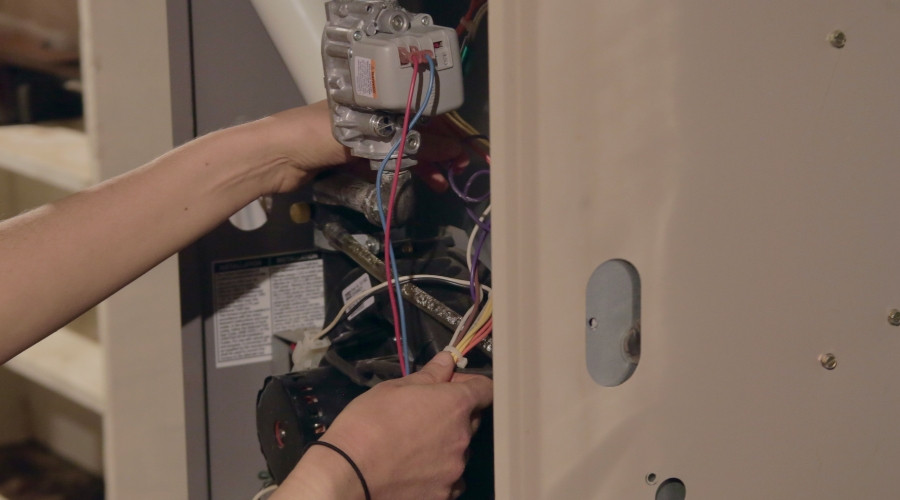When to Replace a Heater and Possible Alternatives
A heating system quietly works in the background—until higher bills, strange noises, or poor comfort make it impossible to ignore. At a certain point, ongoing repairs cost more than they are worth, and heater replacement becomes the smarter long-term choice. This post explains common signs that heating system replacement may be needed and outlines two primary options to consider: furnace installation and heat pump installation. This helps property owners evaluate when to replace aging equipment and which type of system may best fit household needs.
Signs Heater Replacement Is Needed
 Most heaters do not fail overnight; they give warning signs along the way. Age is one of the biggest indicators. As a furnace or heat pump approaches the later years of its expected service life, breakdowns and performance issues become more common. When an older unit needs frequent repairs—especially expensive ones such as blower motors, heat exchangers, or compressors—heating system replacement often makes more financial sense than continuing to patch individual parts.
Most heaters do not fail overnight; they give warning signs along the way. Age is one of the biggest indicators. As a furnace or heat pump approaches the later years of its expected service life, breakdowns and performance issues become more common. When an older unit needs frequent repairs—especially expensive ones such as blower motors, heat exchangers, or compressors—heating system replacement often makes more financial sense than continuing to patch individual parts.
Higher utility costs are another red flag. If fuel or electric rates have not changed significantly but the energy bill keeps climbing each heating season, the system may be running far less efficiently than it once did. Internal wear, failing components, or outdated technology can force equipment to work harder and longer to deliver the same comfort.
Insufficient or uneven heating also points toward needed heater replacement. Cold spots, rooms that never quite warm up, or a system that runs constantly without reaching the thermostat setting often indicate that the existing heater can no longer keep up. At this stage, exploring options such as furnace replacement or heat pump replacement can restore reliable comfort and improve efficiency.
Furnace Installation
A furnace is a central heating appliance that generates heat—typically by burning natural gas, propane, or oil, or by using electric resistance elements—and then distributes warm air through ductwork. Furnaces are known for strong, steady heat output and are a popular choice in areas that experience colder winters.
One advantage of furnace installation is durability. With proper sizing and regular maintenance, a quality furnace can deliver dependable service for many years, often outlasting many comparable heat pump systems. Furnaces also tend to supply hotter air than a heat pump, which helps spaces feel warm quickly and can be especially appealing in colder climates where robust heating is needed on the coldest days.
Furnace replacement can improve safety, performance, and efficiency compared to older models. Modern furnaces offer better controls, quieter operation, and more precise temperature management. For homes already equipped with ductwork and a gas line or other fuel source, furnace installation is often a straightforward path that leverages existing infrastructure while upgrading comfort and reliability.
Heat Pump Installation
 A heat pump works differently from a furnace. Instead of generating heat, it moves heat from one place to another. In winter, it extracts heat from outdoor air (or the ground, in some system types) and transfers it indoors; in summer, it reverses the process to provide cooling. This dual-purpose design means a single heat pump system can often replace both a traditional air conditioner and a separate heater.
A heat pump works differently from a furnace. Instead of generating heat, it moves heat from one place to another. In winter, it extracts heat from outdoor air (or the ground, in some system types) and transfers it indoors; in summer, it reverses the process to provide cooling. This dual-purpose design means a single heat pump system can often replace both a traditional air conditioner and a separate heater.
One of the main benefits of heat pump installation is energy efficiency. Because a heat pump moves heat rather than creating it through combustion or electric resistance, it typically uses less energy to deliver the same level of comfort under many conditions. This efficient operation can translate into lower energy bills over the long term, particularly in moderate climates.
Heat pumps also offer consistent, even comfort without the hot-and-cold swings sometimes associated with older furnaces. Many models support variable-speed operation, adjusting output to match demand more closely. For households seeking an all-electric solution or looking to streamline both heating and cooling with a single piece of equipment, heat pump replacement or first-time heat pump installation can be an attractive option.
Ultimately, the decision between furnace replacement and heat pump installation depends on climate, existing equipment, energy costs, and comfort preferences. A careful evaluation of current system performance and long-term goals helps identify which heater replacement path delivers the best mix of reliability, efficiency, and comfort.
About Lincoln Heating & Air
Lincoln Heating & Air is a top-rated HVAC company that has been proudly serving Sparks and the surrounding areas for over 30 years. They provide honest, upfront pricing and a money-back guarantee. Call them today for heater replacements in Sparks, NV.



